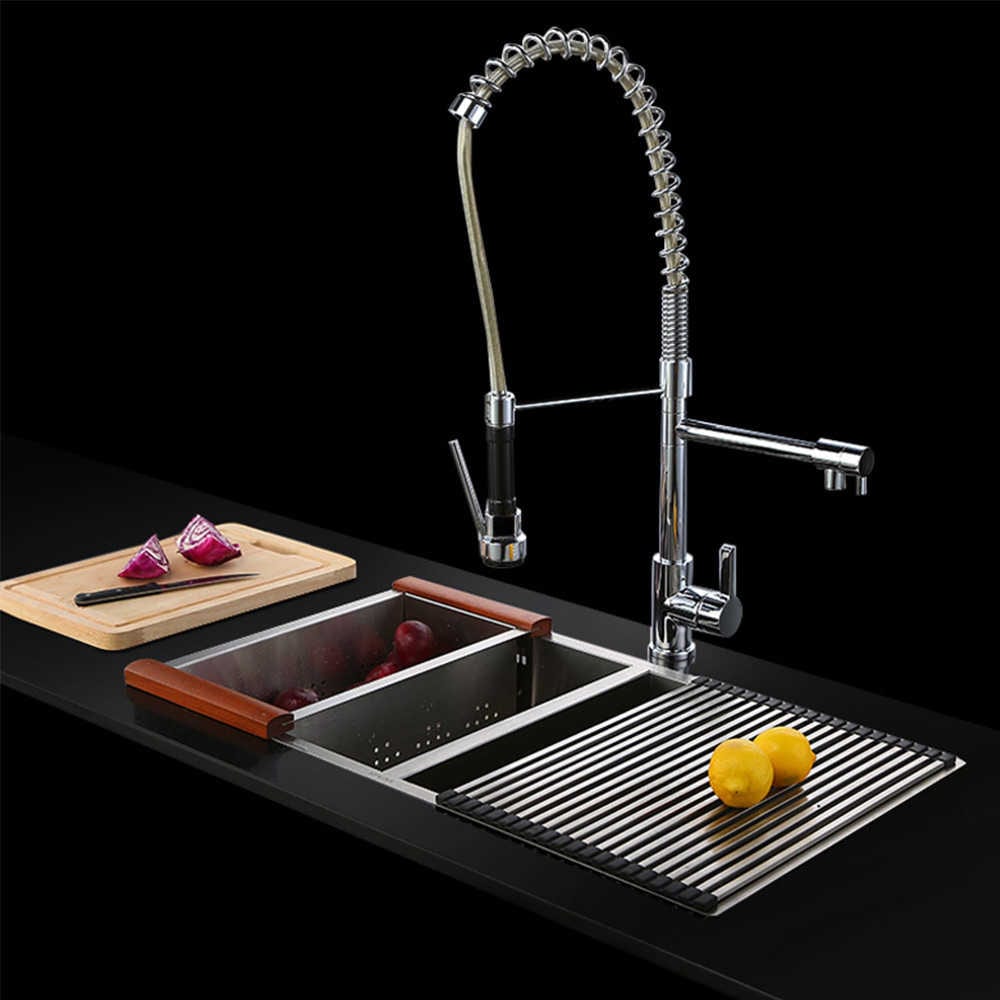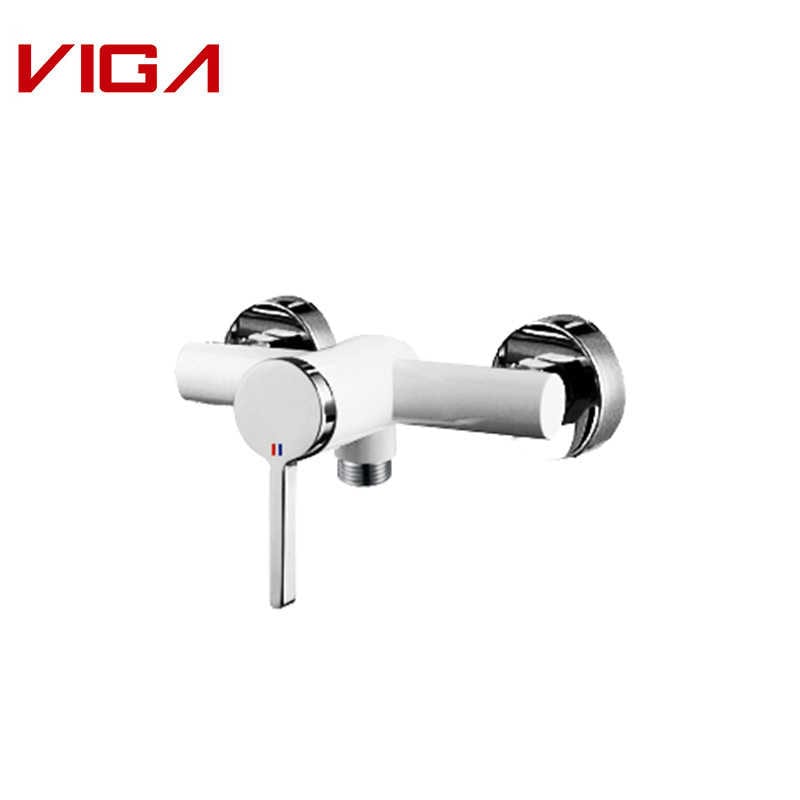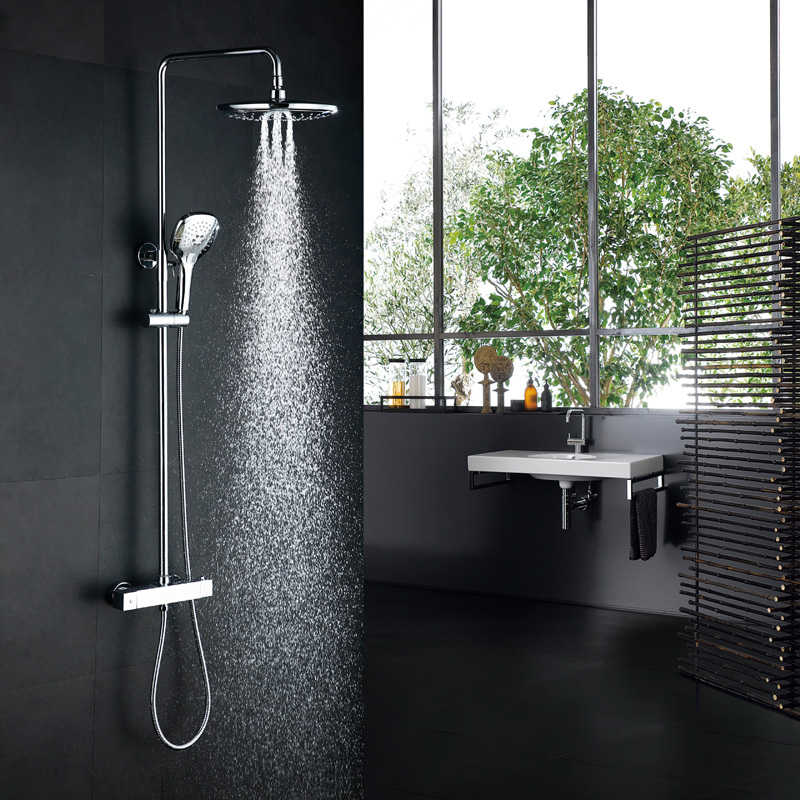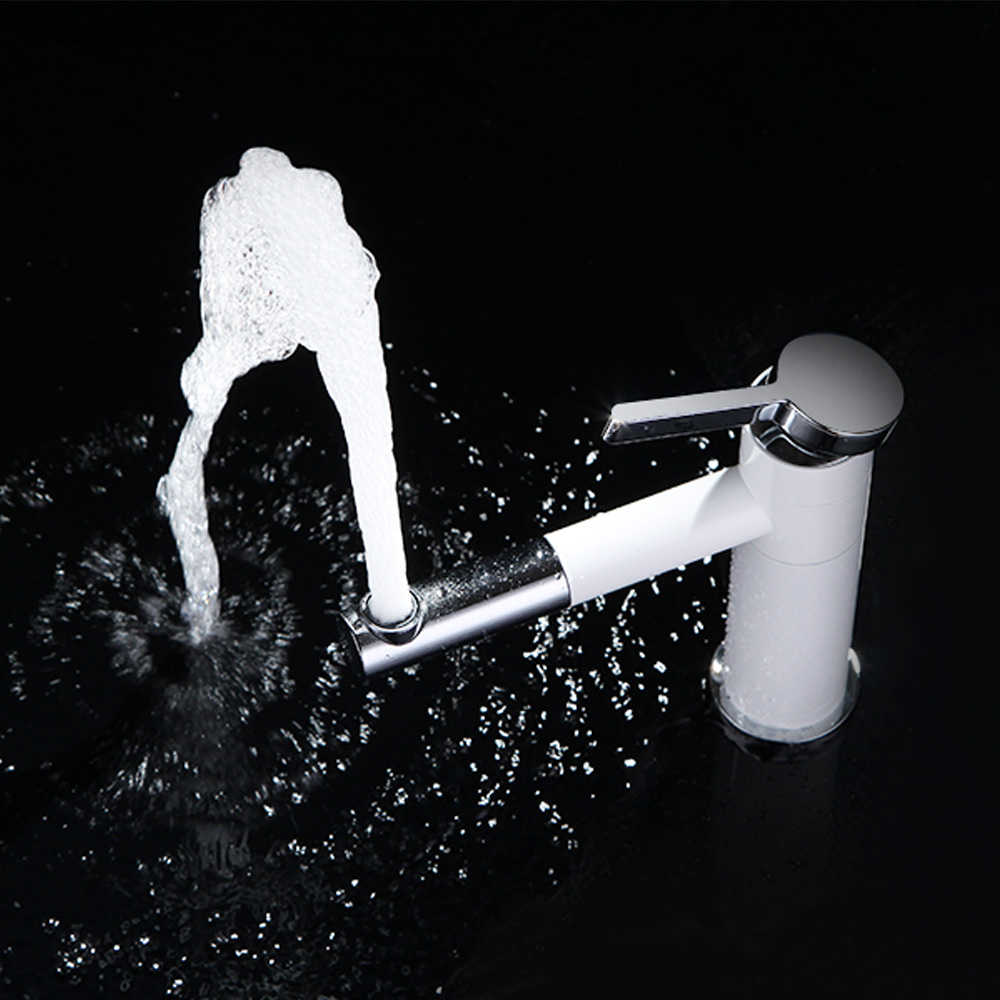The faucet is one of the most frequently used items in the family. Whether it is washing the face in the bathroom or washing the face in the bathroom, it is inevitable to have intimate contact with the faucet. In daily decoration, the choice of faucets is generally planned as a “small thing”, which rarely leads to high talk and attention. But today, we spend three minutes to talk about the “little things” of the faucet, maybe it’s about your health.
The faucet is usually used to control the flow of water and is a switch for running water. Since the faucet is used frequently in daily life, the frequency of faucet replacement is higher than other items. When we change the faucet, we usually consider how to choose the faucet in many aspects. Most of them tend to start from the function and material:
În primul rând, from the function point of view, the faucet is divided into a bathtub faucet, a shower faucet, a basin faucet, a kitchen faucet and the like.
Kitchen faucet: generally need to be higher, a certain distance from the edge of the sink, convenient for the dish to hang on the side of the sink for washing and other operations. If the sink is a double basin, the kitchen faucet needs to be able to rotate, at least 90-180 degrees is convenient.

Bathtub faucet: installed on the side of the bathtub to control the hot and cold mixed water. În general vorbind, it can be connected to the two pipes of the hot and cold. The bathtub faucet needs to pay attention to the handle of the turn, there is no gap transition between the faucet and the switch, and the switch is slippery.

Shower faucet: installed above the shower room for opening hot and cold mixed water. The valve body is also made of brass, and the exterior is chrome-plated and gold-plated. The way to open and close the water flow is screw lift type, ceramic valve core type and the like. These faucets should be kept in the same style as the decoration when purchasing. Pay attention to the height of the faucet and shower when installing.

Basin faucet: divided into single hole and double hole. În prezent, there are many groups using single hole. The switch of this type of faucet is generally above the faucet.

În al doilea rând, from the material point of view, the faucet has copper, fier, oţel inoxidabil, plastic, alloy, ceramic lamps and so on. în plus, there are iron-carbon alloys, which have been banned due to oxidation and rust, which are highly polluted by water.
Copper faucet: În prezent, it is used more faucets, because copper has many shapes, has certain bactericidal function, rezistență la uzură și coroziune. The cost varies depending on the copper content and process.
Stainless steel faucet: It is more resistant to corrosion, acid and alkali, and does not release harmful substances. It will not cause pollution to water. It is also one of the faucets with relatively high voices. Cu toate acestea, the processing is relatively difficult and the cost is high.
Ceramic faucet: This type of faucet looks good, does not rust, does not oxidize and wear, but it is difficult to process and the cost is very high. The average family is rarely used, and it has not been fully popularized.
Plastic faucets: generally used in special areas, such as the transitional use in the construction or renovation process. This faucet is cheaper to construct, simpler in construction, but not durable and easy to wear.
Alloy faucet: Copper is cheap and easier to mass produce. Cu toate acestea, lead is also prone to rust and is relatively easy to break and is not durable.
 Furnizor iVIGA Tap Factory
Furnizor iVIGA Tap Factory

